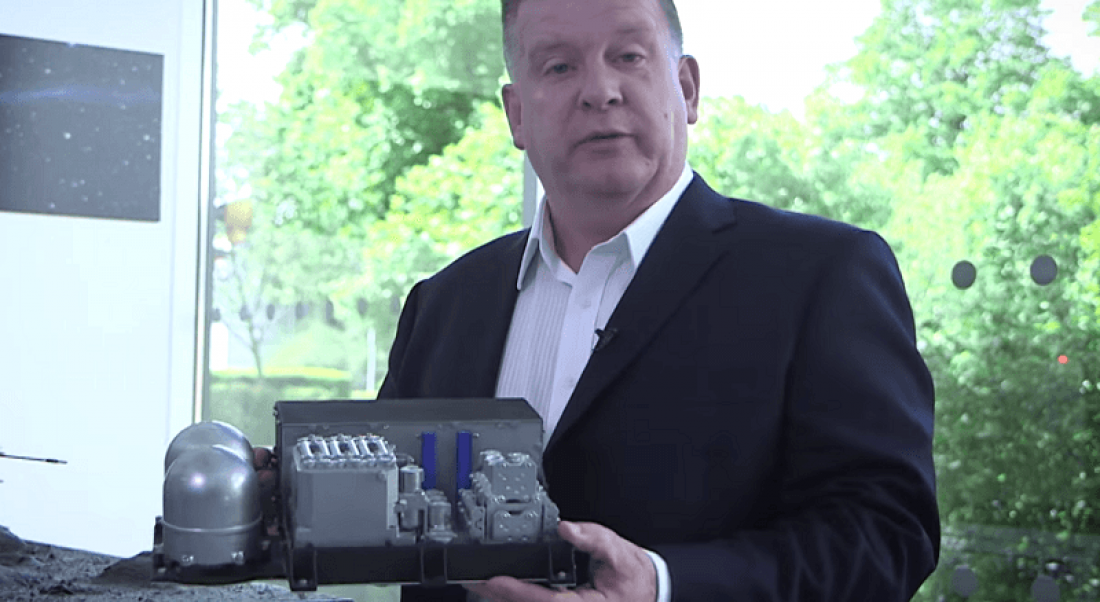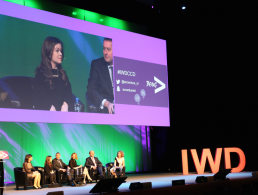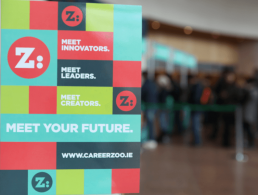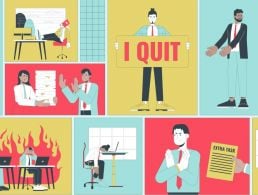This weekend’s Career Zoo is to have a rather special guest speaker after it was confirmed that Dr Geraint Morgan of the Open University and member of the Philae lander team is to give insight into the incredible mission.
Career Zoo confirmed that Dr Morgan is to speak at the event to Siliconrepublic.com with the intentions of speaking on his experiences as one of the key figures in the European Space Agency’s (ESA) Philae lander research team.
The mission continues to capture the attention of space enthusiasts as one of the most daring missions of the last decade as the lander disembarked from Rosetta and actually landed on the surface of Comet 67p.
While a few slight hiccups prevented the mission from going perfectly smoothly, important scientific information was still obtained from the enormous chunk of space debris.
One of the most important discoveries came from the instrument that Dr Morgan worked on, that being the Ptolemy instrument.
The shoebox-sized instrument onboard the craft made headlines for being the first to ‘sniff a comet’ by analysing the chemical composition of its surface.
The findings made by Dr Morgan and the team have recently been published, confirming that complex organic molecules were present in the dust ejected from the comet and, when speaking to Siliconrepublic.com, Dr Morgan said that further breakthroughs are soon to be announced.
Philae’s descent from Rosetta. Image via ESA/Rosetta/MPS for OSIRIS Team MPS/UPD/LAM/IAA/SSO/INTA/UPM/DASP/IDA
Ireland joins the race for space
Of course, one of the people involved in that large team sending Rosetta and Philae to Comet 67p was Ireland’s Dr Susan McKenna-Lawlor who, at Inspirefest earlier this year, revealed her plan to launch Ireland’s first spacecraft sometime next year.
Dr Morgan is particularly familiar with her work given that she was a fellow member of the Cometary Sampling and Composition (COSAC) team that was there at the Lander Operations Centre in Cologne for the Rosetta landing.
At his talk at Career Zoo, he plans to highlight McKenna-Lawlor’s involvement in the mission by showing a photo of all of the members of the Rosetta team.
Speaking of her and Ireland’s ambitions, Dr Morgan says that it’s certainly an indication of the democratisation of space.
“It is indeed a good time for smaller nations to join the exploration of space,” Dr Morgan says. “Many nations are already on that journey and, from what Susan tells us, so is Ireland.”
“Satellites play such an important role in all our lives these days, particularly [in the area of] communications, that all nations need to explore the opportunities on offer.”
ESA team celebrate receiving a signal from Rosetta. Image via ESA
How to get a job in the space sector
Looking ahead, there could potentially be a number of future astronomers, engineers and biologists attending Career Zoo who could one day work with some of the major space agencies.
The number of available jobs relating to space appears to be on the up and up – to pardon the pun – and Dr Morgan agrees that now is the right time to start actually thinking of a career in the exciting field.
“It is a good time for people to explore a career in the space industry, as most countries recognise that the space sector requires highly-skilled individuals from all disciplines; whether that be physicists, engineers (mechanical or electrical), mathematicians, software and firmware developers, CAD designers or, like me, chemists.”
Offering further advice to those attending the event in the Convention Centre Dublin, Dr Morgan says that just because you would like to work in space does not mean you have to have a space-related degree.
“In reality, most people in the space industry have degrees and sometimes higher qualifications in a single discipline, unrelated to space or planetary science,” he says.
“The best advice I can give you is that you should concentrate on your studies and then seek to apply your skills in the space sector once you have the expertise and experience that universities and companies require — that could be anywhere in Europe.”






